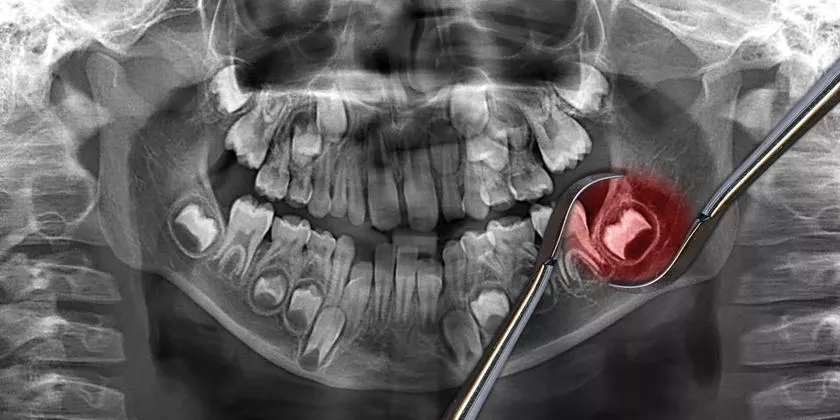Wisdom teeth, also known as third molars, typically emerge in the late teens or early twenties. However, there are instances where these teeth may appear earlier, even as early as age 15. In this article, we’ll explore the factors that influence the timing of wisdom teeth eruption, whether it’s normal to get them at 15, and what individuals in this age group can expect regarding their dental health.
What Is Wisdom Teeth?
Wisdom teeth are the last set of molars to emerge in the mouth, usually between the ages of 17 and 25. They are located at the back of the mouth, one in each corner, and their primary function is to aid in chewing tougher foods. However, due to changes in diet and evolution, many people no longer have sufficient space in their jaws for these teeth to erupt properly.
Factors Affecting Wisdom Teeth Eruption
Genetics: The timing and development of wisdom teeth are largely influenced by genetics. If your parents or siblings had their wisdom teeth come in early, there’s a higher chance that you might experience the same.
Jaw Size: Individuals with larger jawbones may have more space for wisdom teeth to erupt without causing crowding or misalignment issues.
Dietary Changes: Historically, humans had a diet that required more chewing of coarse foods, leading to more wear on teeth and potential space for wisdom teeth. Modern diets, often softer, may not create enough pressure for teeth to align properly.
Is It Normal to Get Wisdom Teeth at 15?
While the typical age range for wisdom teeth eruption is late teens to early twenties, it’s not unheard of for some individuals to start experiencing these teeth as early as 15. This variation is considered within the normal range, influenced by genetic and developmental factors.
What to Expect at 15
If you’re experiencing wisdom teeth eruption at 15, here’s what you might encounter:
Discomfort: The process of wisdom teeth coming in can be uncomfortable or even painful. This is due to the pressure exerted on surrounding teeth and tissues as the wisdom teeth push through the gums.
Potential Impaction: In some cases, wisdom teeth may not have enough space to fully emerge, leading to impaction.
Impacted wisdom teeth can cause pain, swelling, and may require removal.
Dental Evaluation: It’s essential to have regular dental check-ups, especially if you’re experiencing wisdom teeth eruption.
Your dentist can monitor their progress and recommend interventions if needed.
Management And Treatment
Pain Relief: Over-the-counter pain relievers can help manage discomfort during wisdom teeth eruption.
Oral Hygiene: Maintaining excellent oral hygiene, including regular brushing and flossing, is crucial to prevent infection and decay around emerging wisdom teeth.
Consultation: If you experience significant pain, swelling, or notice changes in your bite, consult with a dental professional promptly. They can assess the situation and recommend appropriate treatment, which may include wisdom teeth removal if necessary.
Conclusion
In conclusion, while it’s not uncommon to get wisdom teeth at 15, the timing of their eruption can vary widely among individuals. Genetic factors, jaw size, and dietary habits play significant roles in this process. If you’re experiencing wisdom teeth eruption or have concerns about your dental health, don’t hesitate to seek advice from a qualified dental professional.
Early intervention and proper management can help ensure optimal oral health outcomes.
FAQs
Can Wisdom Teeth Start at 16?
Wisdom teeth, also known as third molars, typically begin to emerge between the ages of 17 and 25. However, it’s not uncommon for some individuals to start experiencing the eruption of wisdom teeth at 16.
The timing of wisdom teeth eruption can vary widely among individuals due to genetic factors, jaw size, and other developmental influences.
Is 14 Too Early for Wisdom Teeth?
While the average age for wisdom teeth eruption is late teens to early twenties, it’s not unheard of for wisdom teeth to start coming in at 14.
However, this is considered on the early side of the normal range.
Genetics play a significant role in the timing of wisdom teeth eruption, so if family members had their wisdom teeth erupt early, it’s possible for the same pattern to occur in other family members.
Is Tooth 1 a Wisdom Tooth?
Tooth numbering in dentistry follows a universal system, where each tooth is assigned a number for identification purposes.
In this system:
The upper right third molar (wisdom tooth) is numbered 1.
The upper left third molar is numbered 16.
The lower left third molar is numbered 17.
The lower right third molar is numbered 32.
So, tooth number 1 refers to the upper right third molar, which is indeed a wisdom tooth.
In summary, wisdom teeth can start coming in at 16, and while 14 is on the early side, it’s not necessarily too early for some individuals. Tooth number 1 corresponds to the upper right third molar, which is classified as a wisdom tooth in dental terminology.

